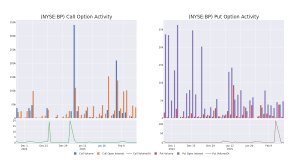Investors in The Trade Desk (NASDAQ: TTD) were seeing red on Thursday as the stock plunged, but they were also green with envy.
As shares of The Trade Desk tumbled more than 30%, fellow adtech titan AppLovin (NASDAQ: APP) was soaring on its earnings report, jumping more than 20% on its fourth-quarter results as it smashed estimates once again.
For The Trade Desk shareholders, it was clearly a disappointing turn of events, and seeing AppLovin’s shares soar only added insult to injury, as AppLovin has surpassed The Trade Desk as the largest adtech company by market cap.
The fourth quarter was a rare miss for The Trade Desk. Revenue rose 22% to $741 million, which was well below the consensus at $759.6 million, and it also missed management’s own guidance.
The Trade Desk CEO Jeff Green was direct about the disappointing results. On the earnings call, he said, “I want to acknowledge up front that for the first time in 33 quarters as a public company, we fell short of our own expectations.” Green said he didn’t care about missing Wall Street estimates, but he viewed missing the company’s own guidance as a breach of trust with investors.
In the third quarter, management had called for revenue of at least $756 million in the fourth quarter and adjusted earnings before interest, taxes, depreciation, and amortization (EBITDA) of $363 million.
The Trade Desk also missed that target with $350 million in adjusted EBITDA. Its adjusted earnings per share increased from $0.41 to $0.59, which edged out the Wall Street consensus at $0.57.
Companies miss estimates for a number of reasons. Typically, poor execution, weak customer demand, macroeconomic headwinds, or a competitive shift are some of the biggest factors in earnings shortfalls.
Green laid the blame for the disappointing results squarely on weak execution, adding, “This didn’t happen because the opportunity isn’t as big as we thought. In this case, it isn’t because of our competition, either.” Instead, he cited a “series of small execution missteps, while simultaneously preparing for the future.”
Among those missteps was that Kokai, its new artificial intelligence (AI)-based platform for customers, rolled out slower than expected, though management expects to upgrade 100% of its customers from Solimar to Kokai this year. It also had its biggest-ever reorganization in December, and that may have slowed the business down. Finally, it made some deliberate decisions to focus on long-term opportunity rather than short-term revenue.



